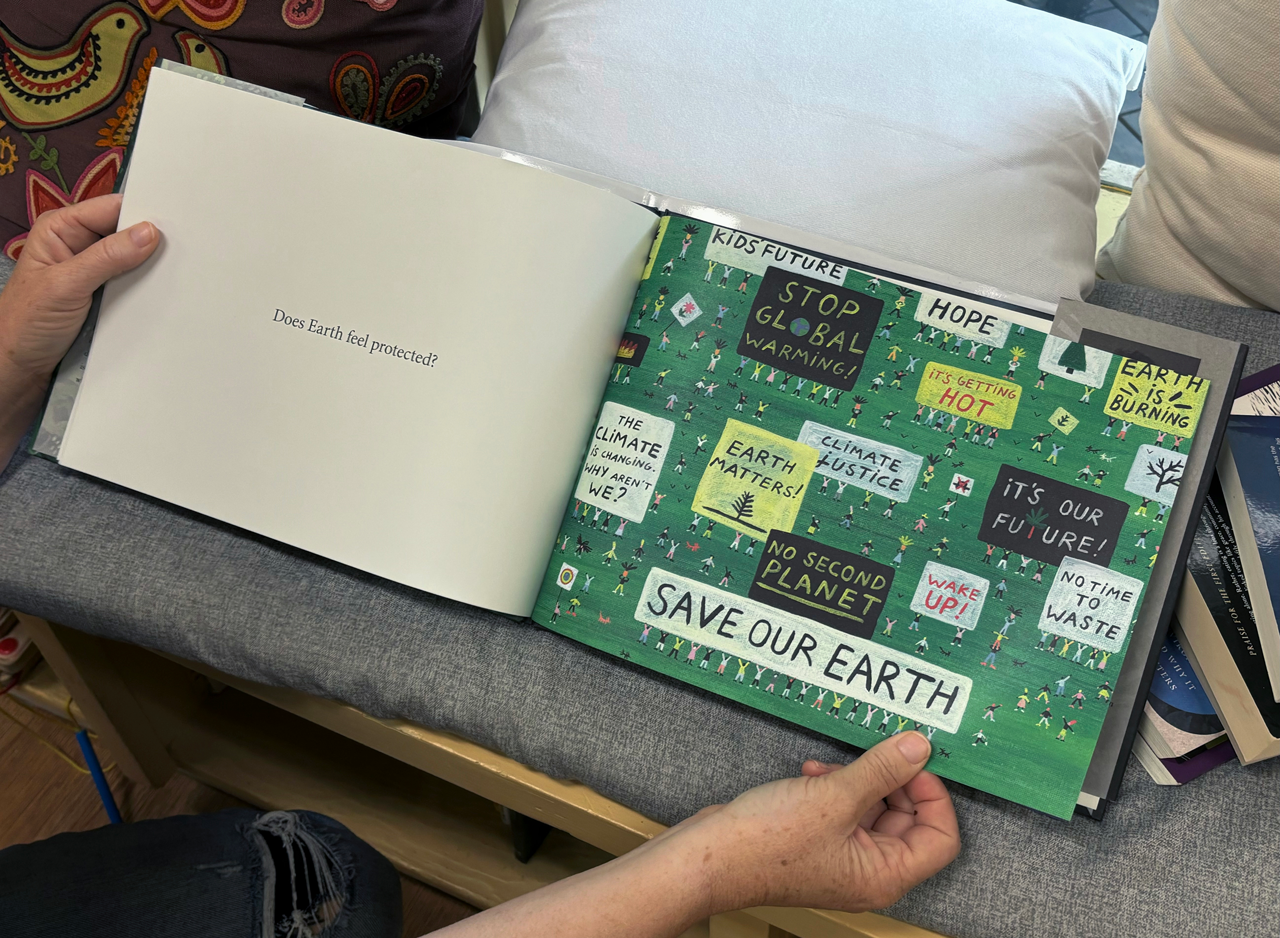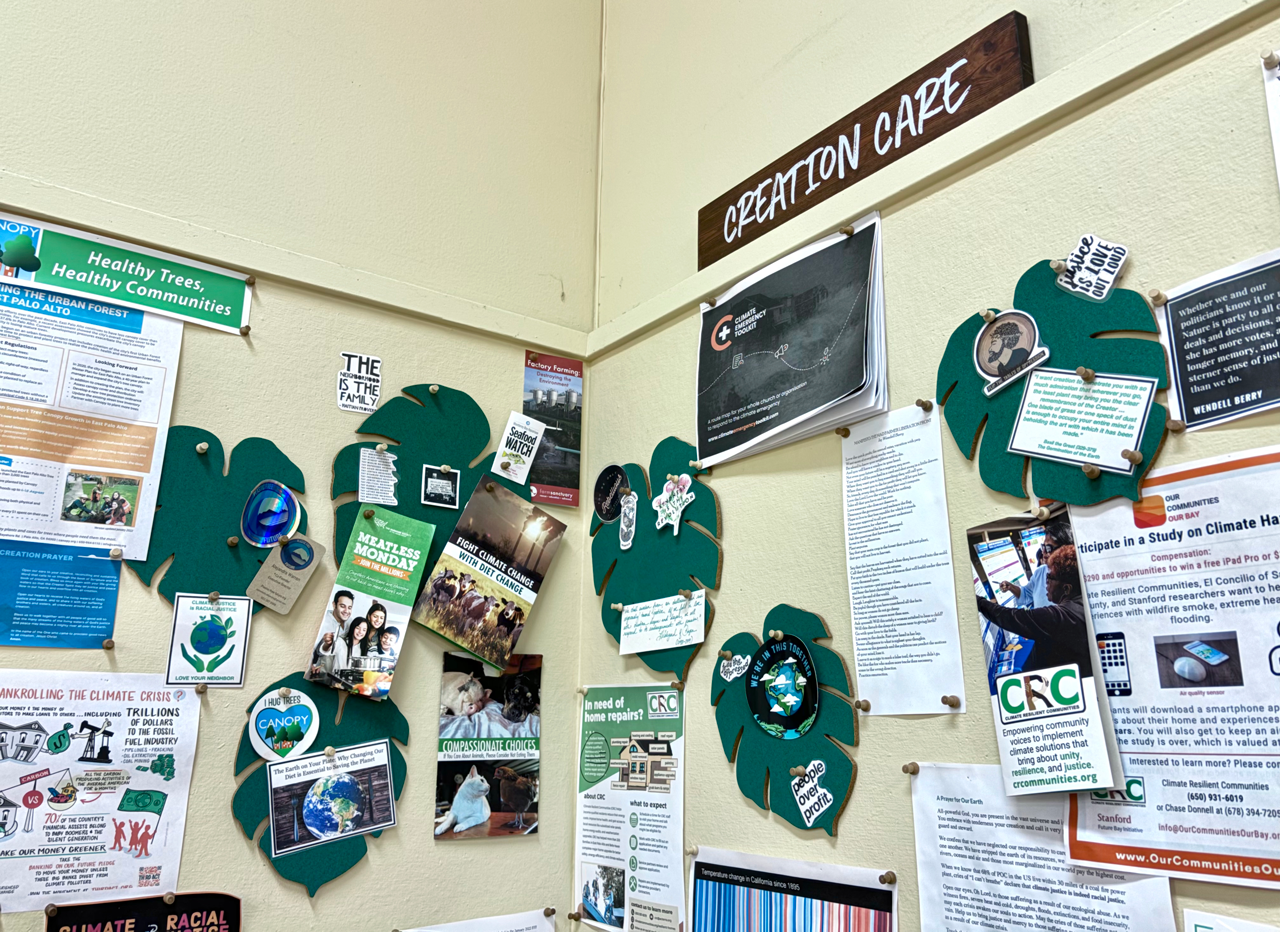
SOUTH SAN FRANCISCO — Local Bay Area faith clergy are working to curb the carbon footprint of their places of worship and help facilitate their followers to change their behaviors in ways that can help the climate.
Since faith often plays a central role in frontline communities, it can be a powerful resource in bringing people together to learn about the issues and think of solutions, according to Violet Wulf-Saena, a director at Climate Resilient Communities, a local nonprofit helping vulnerable communities cope with climate change.
Wulf-Saena, along with Reverend Deborah Lewis-Virges of Saint Mark’s Church, Pastor Danielle Parish of Spark Church, and Rabbi Sheldon Lewis of Congregation Kol Emeth, agreed on the importance of faith-driven climate action and community partnerships at San Mateo County’s annual climate summit on Oct. 8, in South San Francisco.
The discussion came as faith leaders across the globe increasingly push for climate resiliency, with 28 faith leaders signing the ‘The Abu Dhabi Interfaith Statement for COP28’ – a joint commitment to address the escalating crisis – at the United Nations Climate Change Conference hosted in Dubai in December 2023. Earlier in 2024, Pope Francis also urged Muslims and Catholics to come together to confront the dangers of climate change during his meeting with Nasaruddin Umar, the Grand Imam of Southeast Asia’s largest mosque in Jakarta.
Since they often represent racially and economically diverse communities, faith leaders can ensure that the needs of disadvantaged populations are not overlooked when shaping solutions.
“I’m here to be a voice for those who could not take off from work or find a babysitter for today, for those who simply don’t understand the importance of why we must meet and do this,” Lewis-Virges said at the summit. “It is imperative that my church takes on the leadership role of reaching those who may not ever know what harm that really lies ahead for them.”
Cultivating positively contagious behaviors in faith communities
The role of faith leaders is to lead by example, as Parish said, and engage in sustainable actions that people can adopt in their own lives. Climate experts describe them as ‘contagious behaviors’ — climate-friendly behaviors that grab hold of people’s attention, and slowly seep their ways into people’s habits.
For Parish, one action was to create a vegetarian space within Spark Church that could spark conversations around food systems that were rarely discussed.
“Does what I buy matter? Does what I eat matter? How do we care for the farmland that provides our food?” Parish said in an interview.. “It’s contagious behavior even if I just place the questions that help people think.”
Parish and Lewis try to integrate these behaviors in a multitude of ways in their respective spaces — installing solar panels, building rain gardens, eliminating natural gas and plastic products, and creating dedicated climate education spaces within Spark Church and Congregation Kol Emeth in Palo Alto.

Yet, these behaviors need to be understood and easily implemented at a grassroots level, according to Lewis-Virges, who serves on the Climate Change Community Team in East Palo Alto, where many face educational barriers to understanding the complexity of climate change.
The focus has to be on spreading information in a way that people can receive it, Lewis-Virges said at the summit. “It doesn’t need to be scientific or a scare tactic, just practical and realistic.”
One of the key ways faith-based leaders are bridging this gap is by partnering with local non-profits that have the resources to educate and engage low-income communities – that are often worst impacted by climate change – through fieldwork programs.
One example is Spark Church, Saint Mark’s Church, and Congregation Kol Emeth’s support for the tree-planting organization Canopy which educates residents across East Palo Alto, Belle Haven, and North Fair Oaks on the benefits of urban tree cover and helps them restore canopies in their neighborhoods.
Saint Mark’s Church, in partnership with Climate Resilient Communities, also facilitates visits to the Cooley Landing and Ravenswood Preserve in East Palo Alto to familiarize them with native ecosystems.
For Lewis, it goes back to contagious behaviors. As people become more aware, he finds it inevitable that they question what they can individually change with the resources that they have.
“We’re all stakeholders in this community, this interdependent community,” Lewis said in an interview. “It is our responsibility as leaders to listen to all stakeholders and empower them to make these changes.”
The role of faith leaders as stewards of the environment
Since 2017, the UN’s Faith for Earth Initiative has empowered a global interfaith coalition to promote environmental action in faith communities and help the UN meet its Sustainable Development Goals through faith-based approaches.
According to the coalition’s amendment, religious institutions across the world own eight percent of habitable land, as well as over 50 percent of educational institutions, 14 percent of community development corporations, and 10 percent of the world’s financial institutions.
The coalition functions on the belief that faith-based values can influence the behaviors of more than 80 percent of the global population and be a powerful resource in encouraging people to adopt sustainable practices.
“If we don’t get more faith leaders and their communities involved, we’re going to be missing out,” Parish concluded at the summit. “If the leaders can start these contagious behaviors in their communities and teach it with regularity, we can have a good, sizable portion of the Earth influenced.”

